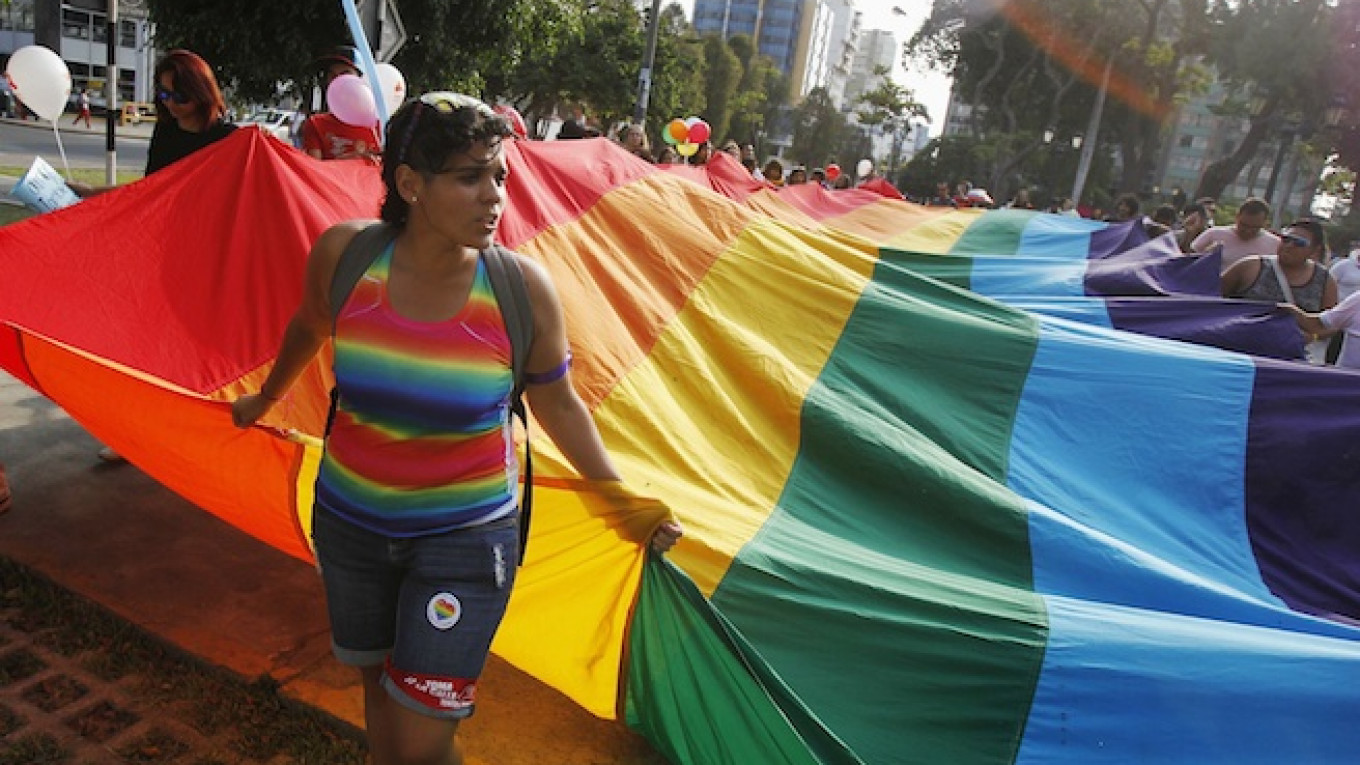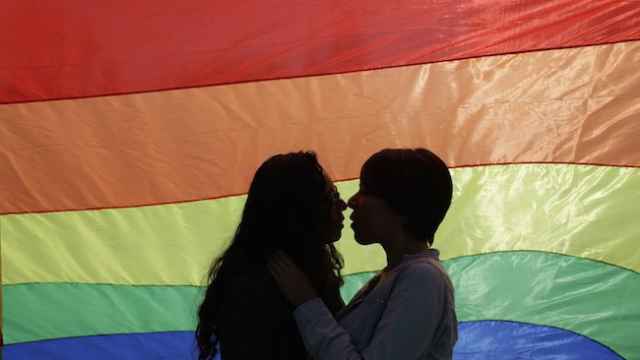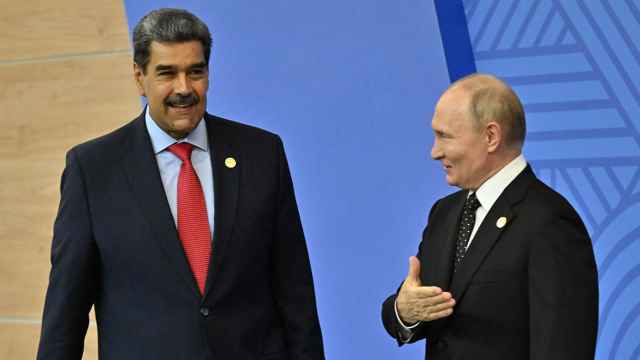UNITED NATIONS — Russia has failed in a bid to stop the United Nations extending staff benefits to all same-sex couples after a UN General Assembly budget committee voted 80 to 43 against the proposal.
There were 37 abstentions and 33 countries did not vote on Tuesday.
UN Secretary-General Ban Ki-moon said in July that the United Nations would recognize all same-sex marriages of its staff, allowing them to receive UN benefits.
Previously, staff members' personal status was determined by the laws of their country of nationality. But the United Nations now recognizes all same-sex couples married in a country where it is legal, regardless of their nationality.
Russia wanted the 193-member General Assembly Fifth Committee, which deals with the UN budget, to overturn Ban's decision and had been threatening to put the measure to a vote since December.
"We must speak plainly about what Russia tried to do today: diminish the authority of the UN Secretary-General and export to the UN its domestic hostility to LGBT [Lesbian, Gay, Bisexual and Transgender] rights," the U.S. ambassador to the United Nations, Samantha Power, said in a statement after the vote.
Deputy Russian UN Ambassador Petr Ilichev said before the vote that the United Nations should return to how the issue was previously regulated, citing it as "an example of how the United Nations respects cultural differences, the sovereign right of each and every state to determine its norms."
He denied that Russia was trying to undermine Ban's authority.
Russia triggered global criticism in 2013 when it banned spreading "gay propaganda" to children. Critics denounced the law as discriminatory and said it is a curb on rights to free speech and assembly.
Russian President Vladimir Putin says there is no gay discrimination in Russia, which decriminalized homosexuality in 1993.
Saudi Arabia, China, Iran, India, Egypt, Pakistan, and Syria were among the countries that voted in favor of Russia's proposal.
"The Kingdom of Saudi Arabia does not support the expansion of benefits for same-sex couples because Saudi Arabia believes these relationships are morally unacceptable," a Saudi diplomat told the UN committee.
A Message from The Moscow Times:
Dear readers,
We are facing unprecedented challenges. Russia's Prosecutor General's Office has designated The Moscow Times as an "undesirable" organization, criminalizing our work and putting our staff at risk of prosecution. This follows our earlier unjust labeling as a "foreign agent."
These actions are direct attempts to silence independent journalism in Russia. The authorities claim our work "discredits the decisions of the Russian leadership." We see things differently: we strive to provide accurate, unbiased reporting on Russia.
We, the journalists of The Moscow Times, refuse to be silenced. But to continue our work, we need your help.
Your support, no matter how small, makes a world of difference. If you can, please support us monthly starting from just $2. It's quick to set up, and every contribution makes a significant impact.
By supporting The Moscow Times, you're defending open, independent journalism in the face of repression. Thank you for standing with us.
Remind me later.






